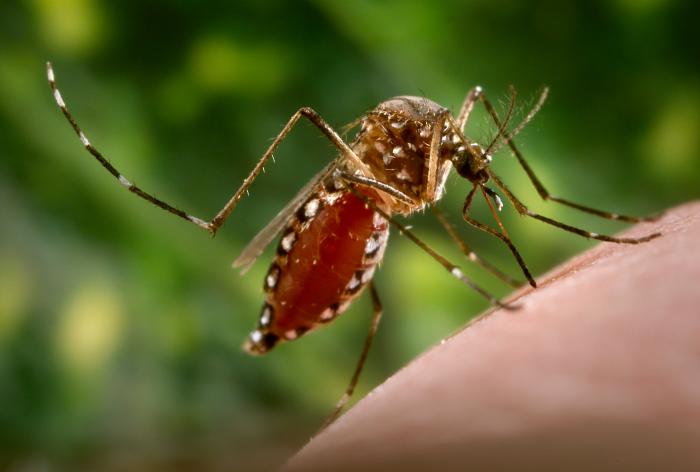Health officials on the Pacific island of Palau are reporting an outbreak of dengue fever. According to the Ministry of Health, the first ever laboratory confirmation of two cases with dengue serotype-3 were reported, prompting an health alert.

Image/CDC
In just the past week, authorities reported nine new cases bringing the outbreak total to 57 cases since Dec. 1.
In response to the outbreak, the Ministry of Health activated its emergency response team on December 7, 2018. The team has been tasked with raising community awareness of the outbreak and dengue prevention measures, conducting disease surveillance and reporting, strengthening mosquito control measures, and ensuring adequate resources are available to combat the outbreak.
Dengue is a viral infection transmitted by the bite of an infected mosquito. There are four closely related but antigenically different serotypes of the virus that can cause dengue (DEN1, DEN 2, DEN 3, DEN 4).
- Dengue Fever (DF) – marked by an onset of sudden high fever, severe headache, pain behind the eyes, and pain in muscles and joints. Some may also have a rash and varying degree of bleeding from various parts of the body (including nose, mouth and gums or skin bruising).Dengue has a wide spectrum of infection outcome (asymptomatic to symptomatic). Symptomatic illness can vary from dengue fever (DF) to the more serious dengue hemorrhagic fever (DHF).
- Dengue Hemorrhagic Fever (DHF) – is a more severe form, seen only in a small proportion of those infected. DHF is a stereotypic illness characterized by 3 phases; febrile phase with high continuous fever usually lasting for less than 7 days; critical phase (plasma leaking) lasting 1-2 days usually apparent when fever comes down, leading to shock if not detected and treated early; convalescence phase lasting 2-5 days with improvement of appetite, bradycardia (slow heart rate), convalescent rash (white patches in red background), often accompanied by generalized itching (more intense in palms and soles), and diuresis (increase urine output).
- Dengue Shock Syndrome (DSS) — Shock syndrome is a dangerous complication of dengue infection and is associated with high mortality. Severe dengue occurs as a result of secondary infection with a different virus serotype. Increased vascular permeability, together with myocardial dysfunction and dehydration, contribute to the development of shock, with resultant multiorgan failure.
CDC travel notice for Palau due to local Zika transmission
Lymphatic filariasis elimination: ‘The Government of Vietnam really deserve congratulations’
Guam reports measles case in infant, advises travelers to Micro Games to ensure vaccination

